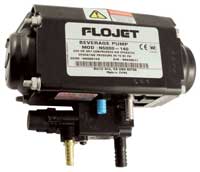Wow, thanks for all your input guys. I'll try and reply to all questions asked and hopefully that'll help other opinions.
DoctorM: I did wine a few years back and went all in as my neighbor does every year. His wine is terrible, but I wanted to start the hobby and went with him to a seasonal trailerload dealer who parks by a ballpark every year and bought 24 crates of Merlot and went big right off the bat. As you can imagine, the wine tasted like garbage because the grapes were garbage. Tasted like my neighbor's but more alchohol because I put proper yeast in whereas he just lest wild yeast run wild. So I had several gallons of terrible wine I had to make sangria with, and that hobby stopped. I still have a great ph meter, several large carboys and other odds and ends that translate to beer. Part of THAT debacle was we weren't wine drinkers but thought we' get into it, which we never have. Enjoy wine, just not enough to make it anymore. Also tried mead making, which went well we just don't drink mead much. Another fling I suppose. The one thing that DOES stay constant is we do drink beer and have since we were legal, that will never stop unless it's medically necessary

so I figure we'll drink what we make and keep drinking it rather than losing interest because we just lost interest in drinking it. Question 2, don't have a lot of hobbies to quit other than wine. Golfed for years, bought pro equipment, then ran out of time to play up to the level I once attained. Still will play when I get the time so that equipment is still good and useable. Question 3, I don't mind putting money in and losing interest. We have enough to easily cover this hobby so the money at this point is no problem for whatever we want to do. I already have more than enough carboys & locks, ph meter, CO2 tank & reg from saltwater tank. O that one also fell by the wayside, mostly because a friend's kid came by and tried cleaning the tank with the magnet cleaner and scratched the inside up to no end. We can always use the freezer for food, so other than a few cornys that won't break my bank and some hardware, maybe a good stainless pot I don't see this as much money at all for us, don't mind if I quit. But the thing is, a lot of beers are drinkable in a short time, which helps. Having 3 or 4 cornys can help keep us stocked in beer year round fairly quickly.
And if all else fails I have a neighbor that'll help me get through 5 gallons at a patch long before it loses it's quality.
As far as brewing good brew, I'm extremely meticulous so cleanliness shouldn't be a problem, wasn't with the wine although I know beer is less alchohol. And since I'm so meticulous I follow directions well so I'm hoping I'll have a good go from the start if I start with easier batches first.
As for kegging I just see it as less work than bottling and no glass to mess with, no bottle caps to constantly buy either, plus I can carb easier than the bottle method so I figured that'll help me keep going on the hobby, making it as easy as possible.
BTW I have John's book. I have likely most all books I could ever want on the subject including many that go far into the hobby from a scientific standpoint that I don't need at this point.
I have a separate small fridge that holds a 6 gallon carboy perfectly so I can ferment one at time in that I suspect.
I've seen a few youtubes on the keezer which is what got me started on that idea. Saw billybrews which looks awesome although smaller than what I want, love the black and wood thing he does but I'm thinking the 14.8 route and I can't find a black one anywhere.
I'm definitely going to keep batches at 5 gallons for a while. If I'm doing a party that year in summer I can always do a 10 but I've never needed more beer than that at one time so I can safely say I won't be buying a high end fermenter, just carboys and a fridge.
I think the carbed info is good, makes sense. If it's not left on pressure for a week then it should have no or very little carb yes?
Already contemplating unlocking the trial of BeerSmith for this although it seems far more in depth that I might need by just following recipe instructions at the moment.



